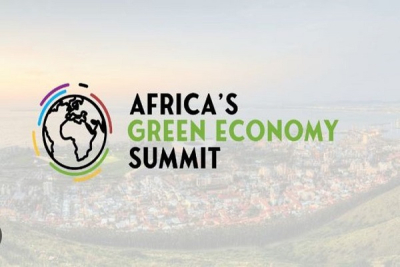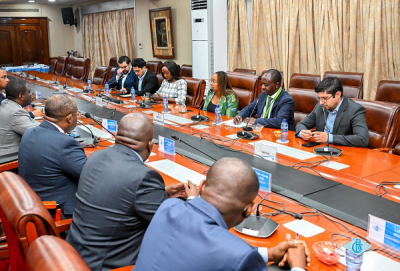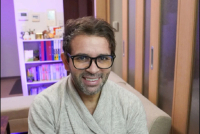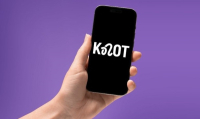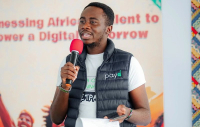- Algeria adopted a new presidential decree to reinforce cybersecurity governance across public institutions.
- The framework mandates dedicated cybersecurity units reporting directly to institutional heads.
- Algeria faced more than 70 million cyberattacks in 2024, according to Kaspersky data.
Algeria has adopted a strengthened institutional framework to protect its information systems against rising cyber threats. Presidential Decree No. 26-07 of January 7, 2026, published on January 21 in the Official Gazette, defines the organisation and operation of cybersecurity structures within public institutions, administrations and agencies to improve the anticipation and management of cyberattack risks.
Under the decree, each public entity will establish a dedicated cybersecurity unit that remains separate from the technical information systems management function. The unit will report directly to the head of the institution and will coordinate all actions related to data protection and system security, including for supervised agencies.
The cybersecurity units will design and oversee the implementation of cybersecurity policies, identify risks through dedicated mapping, and deploy appropriate remediation plans. The framework also requires continuous monitoring, regular audits, and the immediate reporting of any incident to the competent authorities.
The decree further mandates compliance with personal data protection legislation in coordination with the national supervisory authority. In addition, it promotes coordination with public procurement and internal security bodies to integrate cybersecurity clauses into outsourcing contracts and strengthen the protection of personnel and equipment.
This initiative comes amid a sharp rise in cyberattacks in Algeria. In 2024, the country recorded more than 70 million cyberattacks, according to Kaspersky, which ranked Algeria 17th globally among the most targeted countries. Security solutions blocked over 13 million phishing attempts and neutralised nearly 750,000 malicious attachments, highlighting the scale of the risks facing users and organisations.
Authorities expect the new framework to deliver a lasting strengthening of cybersecurity governance across the public sector and to support Algeria’s digital transition through tighter institutional oversight. In a country where digital systems continue to expand rapidly, the operational cybersecurity framework aims to protect public services, critical infrastructure and sensitive data, while reinforcing confidence among citizens and economic actors in the digital ecosystem.
This article was initially published in French by Samira Njoya
Adapted in English by Ange J.A. de BERRY QUENUM
- Ayooka launched a national digital blood transfusion management platform in Guinea in 2022.
- The system uses artificial intelligence to manage blood stocks, reduce waste and anticipate shortages.
- The platform operates with support from the National Blood Transfusion Centre (CNTS) and health professionals.
Ayooka operates as an integrated digital solution dedicated to the management and optimisation of blood transfusion services in Guinea. The platform functions as a digital information and management system designed to improve the efficiency and security of processes related to blood collection, processing, distribution and traceability. The platform launched operations in 2022.
“Ayooka is the digital information and management system for Guinea’s blood transfusion services,” the platform said. “This integrated technological platform enables efficient and secure management of all processes related to the collection, processing, distribution and traceability of blood and its components.” The platform added: “Our objective is to optimise blood product stock management, guarantee the quality and safety of transfusions, and facilitate communication between all stakeholders in the transfusion sector, including donors, healthcare facilities and laboratories.”
The solution relies on several functional modules to address sector-specific challenges. Ayooka deploys artificial intelligence-assisted stock management to anticipate shortages, reduce waste and plan blood collection operations. The platform also integrates a hemovigilance module to monitor, assess and prevent incidents linked to blood products. In addition, the system allows physicians to track requests and prescriptions for labile blood products, while ensuring full documentation of administration to patients.
The platform also integrates public awareness features through digital and multimedia campaigns designed to encourage blood donations, including among non-schooled populations. A quality assurance component covers the entire transfusion chain, from donation to clinical administration.
With support from the National Blood Transfusion Centre (CNTS) and healthcare professionals, Ayooka aims to increase donation frequency and contribute to saving lives by improving the availability and safety of blood products.
This article was initially published in French by Adoni Conrad Quenum
Adapted in English by Ange J.A. de BERRY QUENUM
Cape Town will host the Africa Green Economy Summit 2026 from February 24-27. Centered on the theme "From Ambition to Action," the summit connects decision-makers with investors to accelerate green and blue projects. With a focus on closing the climate funding gap, the event will feature 50 bankable projects in sectors like renewables, sustainable farming, and electric mobility.
Nigerian stablecoin-focused fintech OneDosh has raised $3 million in pre-seed funding to build out its cross-border payment infrastructure. Operating in both the U.S. and Nigeria, the platform enables rapid transfers, stablecoin storage, and payments via Apple Pay and Google Pay-compatible cards. The capital will fuel expansion into new payment corridors and the growth of its engineering teams.
Last week, Central Bank of Congo (BCC) Governor André Wameso met with GSMA representatives to discuss potential partnerships to expand connectivity nationwide. Talks focused on digitalisation, financial inclusion and infrastructure, key priorities in the BCC’s drive to modernise the financial sector.
-
Côte d’Ivoire appointed Djibril Ouattara as Minister of Digital Transition and Technological Innovation on Jan. 23, 2026.
-
Ouattara brings more than 20 years of telecom and ICT experience, including leadership roles at MTN and Canal+.
-
The government expects faster progress on digital administration, broadband rollout, cybersecurity, and 5G preparation.
Djibril Ouattara is now Côte d’Ivoire’s Minister of Digital Transition and Technological Innovation. The government appointed him on Friday, Jan. 23, as part of the Beugré Mambé II cabinet reshuffle. He succeeds Ibrahim Kalil Konaté, who had held the portfolio since October 2023.
A recognized figure in the telecom ecosystem, Ouattara brings more than two decades of experience in information and communication technologies. He previously led MTN Congo and later MTN Côte d’Ivoire, where he oversaw network modernization programs, digital infrastructure expansion, and service quality improvements in a highly competitive market.
His professional career also includes senior management roles at Canal+ Côte d’Ivoire and Etisalat Atlantique Togo, a West African telecommunications operator active in mobile, internet, and data services.
Trained at the Félix Houphouët-Boigny National Polytechnic Institute and holding an MBA from the MIT Sloan School of Management in the United States, Ouattara combines technical expertise, strategic management skills, and international exposure. This profile is expected to influence the execution of the state’s flagship digital projects.
As head of the Ministry of Digital Transition and Technological Innovation, Ouattara takes charge of several structural initiatives. Government priorities include accelerating the digitalization of public administration, improving the quality of digital public services, strengthening cybersecurity, and enhancing the protection of personal data.
The government also expects faster deployment of high-speed broadband infrastructure, preparation for the introduction of 5G, and expanded coverage in rural areas that remain poorly connected. Côte d’Ivoire already counts more than 58 million active mobile lines and reports an internet penetration rate exceeding 185%, according to official data.
The new minister will also need to structure an environment that supports local innovation. Authorities expect stronger support for startups, easier access to private investment, and expanded digital skills development for young people, as demand for technology talent continues to rise.
Djibril Ouattara’s appointment marks a new phase in Côte d’Ivoire’s digital governance. After a period focused on institutional structuring under his predecessor, the executive now seeks faster operational execution to convert digital ambitions into concrete, measurable, and sustainable results.
This article was initially published in French by Samira Njoya
Adapted in English by Ange J.A. de BERRY QUENUM
-
Paul-Hermann Alao founded Charts, a SaaS company that helps SMEs convert raw data into decision-ready insights.
-
Charts offers ready-to-use and customized BI reporting tools across core business functions.
-
Alao built his expertise through roles at NSIA Technologies, ASCENS Services, and Orange.
Paul-Hermann Alao is an Ivorian data consultant and business intelligence specialist. He founded and leads Charts, a company that focuses on data analysis and value creation to help organizations improve strategic decision-making.
Founded in 2022, Charts aims to support small and medium-sized enterprises in structuring and scaling their operations through improved data usage. The company designs and deploys tools based on data analytics and business intelligence, a set of methods that convert raw data into actionable insights for decision-makers.
Charts operates under a software-as-a-service model. The company delivers its tools and reports through an online platform. Clients select a reporting package from a predefined catalog. The platform then analyzes company-specific data and adapts the reports accordingly. At the end of the process, clients receive fully customized dashboards and reports.
Charts structures its offering around several ready-to-use reporting packages that cover key business functions. These packages include sales, finance, human resources, marketing and customer relationship management, project management, and IT service management. Each package allows companies to visualize performance clearly and track key performance indicators.
Beyond standardized products, the startup also provides tailored services. Charts designs and implements custom decision-support systems based on each organization’s specific needs. The company also delivers data integration and visualization services and provides training in Microsoft Power BI, a widely used tool for creating interactive reports, charts, and dashboards.
Paul-Hermann Alao graduated from Félix Houphouët-Boigny University in 2020 with a master’s degree in applied computer methods for business management (MIAGE). He began his professional career in 2017 as a software developer. He worked for technology company LIFILED and for Ivorian mobile banking firm S-Cash.
In 2020, Alao joined NSIA Technologies as a business intelligence engineer. In 2021, ASCENS Services appointed him head of BI support. Orange Côte d’Ivoire recruited him in 2022 as a Power BI consultant and promoted him in 2023 to technical lead for Power BI. From 2024 to 2025, he worked as a Power BI consultant at Orange Burkina Faso.
This article was initially published in French by Melchior Koba
Adapted in English by Ange J. A. de BERRY QUENUM
-
Abderahmane Boucetta founded DataInsta, a Tokyo-based platform that links companies with vetted AI and data experts.
-
The platform allows firms to hire individual specialists or build full AI teams for complex projects.
-
Boucetta combines a deep scientific background with experience at firms including Amazon and PINKO.
Abderahmane Boucetta is an Algerian entrepreneur based in Tokyo, Japan. He founded and leads DataInsta, an online platform dedicated to connecting companies with specialists in artificial intelligence and data science.
Founded in Tokyo in 2024, DataInsta allows organizations to rapidly access qualified professionals to execute projects related to AI, data analytics, and adjacent technologies. Companies can recruit a single expert or assemble a complete project team depending on operational needs. The platform rigorously vets listed specialists to ensure a high level of technical competence and professional experience.
Beyond matchmaking, DataInsta offers a suite of tools and services branded InstaAgents. This offering allows clients to move beyond talent sourcing and deploy AI-based solutions more rapidly and in a structured manner.
The platform also provides a dedicated space for freelancers. Independent experts can create profiles, showcase skills, and connect directly with companies seeking targeted expertise. DataInsta aims to simplify access to AI and data expertise for businesses across sectors and company sizes.
Alongside DataInsta, Boucetta founded Boutique Boost, a digital marketing agency specializing in fashion brands, which he launched in 2019. His first entrepreneurial venture dates back to 2015 with Kaayn, a classified advertising platform that offered promotional and sales services to businesses and individuals.
Boucetta holds a degree in nuclear engineering obtained in 2011 from Ferhat Abbas University in Sétif, Algeria. He earned a master’s degree in materials science in 2013 from the University of Science and Technology of Oran Mohamed Boudiaf. He also completed a PhD in science and engineering in 2016 at Hirosaki University in Japan.
In the same year, Boucetta became head of research and development at SEAVAC, an international surface treatment services company. In 2020, he joined Italian fashion brand PINKO as a media buyer before moving to Amazon in 2021 as a marketing and advertising specialist. He later joined PlusOne, a mixed reality and artificial intelligence firm, as head of B2C growth marketing. From 2022 to 2023, he served as marketing lead at CoA Nexus, a technology company specializing in the recruitment of scientific researchers.
This article was initially published in French by Melchior Koba
Adapted in English by Ange J. A. de BERRY QUENUM
- Egyptian startup Knot develops an AI-based online ticketing platform.
- The solution targets fraud, resale losses, and weak demand visibility.
- The platform has been tested with over 50 professional clients across three regions.
Knot is an online ticketing solution developed by Egyptian startup Knot Technologie. Based in the United Kingdom and Egypt, the company offers a platform designed to modernize traditional ticketing systems, which are often seen as inefficient, vulnerable to fraud, and opaque for event organizers. The startup was founded in 2025 by Ahmed Abdalla and Hussein ElBendak.
The current ticketing model for concerts, festivals, sports events, and other large gatherings has become a major source of economic leakage. Organizers struggle to assess real demand, a significant share of revenue is lost to unregulated secondary resale markets, and fans are frequently exposed to fraud or inflated prices.
Knot’s platform integrates artificial intelligence at several levels to address these structural challenges. It authenticates buyer identities, manages ticket distribution, and monitors demand in real time. These functions allow organizers to limit unauthorized transfers, recover revenue lost to secondary markets, and access detailed data on how events are marketed and consumed.
Following successful pilot programs with more than 50 professional clients in Europe, the Middle East, and North Africa, the company is positioning itself as a core infrastructure player for the next generation of digital events. The platform aims to deliver more secure, seamless, and data-driven experiences for organizers, venues, and audiences.
Adoni Conrad Quenum
-
Kenyan fintech Payd enables instant cross-border payments to more than 35 countries at fees up to 70% lower than traditional banks.
-
The Nairobi-based startup launched in 2023 to serve freelancers, creatives and small businesses operating globally.
-
Payd allows users to open virtual dollar and euro accounts and manage international payroll, invoicing and bulk payments.
Payd operates as a fintech solution developed by a Kenyan startup. The platform provides a suite of financial tools that allow users to receive, send and manage money internationally within seconds. The Nairobi-based startup launched in 2023 under the leadership of founders Benaiah Wepundi and Japheth Achimba.
“Our PayPal accounts were suspended due to address verification issues and irregular income,” Benaiah Wepundi told Disrupt Africa. “I was also running a distributed talent team across Kenya, Nigeria, Brazil and the Philippines for a U.S. company, and payroll was always delayed by a full day,” he said.
At the core of Payd’s offering, the platform delivers instant payments to more than 35 countries, with fees that can be up to 70% lower than those charged by traditional banks. Users can send funds through mobile money, bank transfers, cards or digital dollars, which removes the three- to five-day delays commonly associated with conventional banking services.
Payd also focuses on simplifying income generation for independent workers. Freelancers can create professional invoices within minutes, generate payment links and set up customized digital storefronts that allow clients to pay easily for services or products.
“Most users never directly interact with wallets, chains or tokens: they simply receive and use their money as they would with a bank account,” Wepundi said.
Another key feature allows users to open virtual U.S. dollar and euro accounts within minutes. This capability enables users to receive international payments without complex banking procedures and convert funds into local currencies at often more competitive exchange rates.
Payd also targets businesses through its Business offering. The platform provides advanced financial management tools, including international payroll management, automated invoicing, expense tracking and the ability to execute bulk payments to global partners and subcontractors.
This article was initially published in French by Adoni Conrad Quenum
Adapted in English by Ange J. A. de BERRY QUENUM
More...
-
Guinea completed the rehabilitation and equipping of its cybercrime directorate, financed by the National Development Budget.
-
Authorities upgraded facilities and equipment to support digital investigations and evidence collection.
-
The country ranked in the third performance tier in the ITU’s 2024 Global Cybersecurity Index, with strong legal and organizational scores.
Guinea continued to strengthen its digital security framework. On January 21, the Prime Minister’s Office announced the full rehabilitation and equipping of the Directorate of Cybercrime and the Fight Against Technological Traces. The National Development Budget financed the initiative.
Prime Minister Amadou Oury Bah visited the new premises alongside the Minister of Security and Civil Protection, General Bachir Dial.
The infrastructure is located in the Minière district in Dixinn municipality. The facility includes a modern two-storey building designed to meet technical requirements for digital investigations. Authorities officially inaugurated the site on December 17, 2025, and they equipped it with specialized tools to analyze technological traces, collect digital evidence, and process information technology-related offenses.
This modernization comes as cybersecurity holds a strategic role in Guinea’s public policies. The progressive digitalization of administrative services, the expansion of electronic payments, and the growth of digital usage increase risks related to cyberattacks, identity theft, and online fraud. Authorities aim to adapt National Police operational capacities to a rapidly evolving digital environment.
In its Global Cybersecurity Index 2024, the International Telecommunication Union stated that countries must prioritize cybersecurity to fully harness information and communication technology potential. Guinea ranked in the third of five performance categories established by the UN agency.
The country recorded strong results in legal and organizational frameworks, with scores of 16.27 and 14.38 out of 20, but it still faces gaps in technical and operational capacity.
Through this investment, Guinea aims to improve the effectiveness of cybercrime enforcement, enhance training for specialized agents, and strengthen citizen confidence in security services. Over the long term, the framework should secure digital usage, support the country’s digital transformation, and provide a safer environment for economic actors engaged in digital development.
This article was initially published in French by Samira Njoya
Adapted in English by Ange J. A. de BERRY QUENUM
Applications are open for the 2026 Female Founder Award, a global programme recognising women-led tech startups. Held during Viva Technology in Paris, the competition offers winners greater exposure, mentorship and support in raising funds. Applications close on Feb. 2, 2026, and selected finalists will be presented at the event.
-
Internet shutdowns cost sub-Saharan Africa an estimated $1.56 billion in 2024, according to Top10VPN.
-
Governments imposed at least 300 shutdowns worldwide over the past two years, making 2024 the worst year since 2016.
-
Sudan accounted for about 72% of Africa’s total economic losses from shutdowns in 2024.
UNESCO has expressed concern over the growing use of Internet shutdowns ordered by governments, particularly during political crises or election periods. In a statement published on Jan. 21, the UN agency stated that Internet access represents a cornerstone of freedom of expression and a central component of democratic rights. UNESCO urged states to prioritize policies that support connectivity rather than impose restrictions.
This position comes amid a global increase in government-imposed shutdowns, including across Africa. According to digital rights group Access Now, which UNESCO cited, authorities recorded at least 300 Internet shutdowns across more than 54 countries over the past two years. The data made 2024 the worst year for shutdowns since 2016.
Since the start of 2026, several countries have again imposed full or partial connectivity disruptions. Governments implemented these measures during large-scale protests or sensitive electoral processes.
In sub-Saharan Africa, these practices carry a particularly heavy economic cost. According to the Global Cost of Internet Shutdowns 2024 report published by British platform Top10VPN, Internet shutdowns and social media restrictions caused estimated losses of $1.56 billion in the region in 2024. Although losses declined slightly from $1.74 billion in 2023, the figures remain substantial and reflect the persistence of measures that slow Africa’s digital economic growth.
The report showed that shutdowns totaled 32,938 hours across sub-Saharan Africa in 2024 and affected 111.2 million Internet users. Sudan ranked among the hardest-hit countries, with estimated economic losses of $1.12 billion, or nearly 72% of the regional total, amid conflict and prolonged restrictions. Ethiopia and Kenya also posted significant losses of $211.2 million and $75 million, respectively, in contexts involving security tensions, protests, and information controls.
Authorities generally justify Internet shutdowns on grounds of national security, public order, or efforts to combat disinformation. In practice, governments often implement these measures through social media blockages, intentional bandwidth throttling, or complete shutdowns. These actions disrupt platforms that play central roles in news distribution, commercial activity, digital financial services, and social organization.
UNESCO said these disruptions extend far beyond access to information alone. The agency stated that shutdowns weaken media ecosystems, hinder journalists’ work, and encourage the spread of unverified information. UNESCO added that shutdowns also undermine related fundamental rights, including access to education, freedom of assembly, and participation in public life, while eroding trust in the digital environment.
Many African countries continue to rely on digital technologies to drive growth, expand financial inclusion, and modernize public services. Against this backdrop, repeated Internet shutdowns increasingly conflict with these objectives. Top10VPN said it calculated economic losses based on digital GDP, shutdown duration, and the number of affected users, highlighting direct revenue losses for businesses, telecom operators, and governments themselves.
This article was initially published in French by Samira Njoya
Adapted in English by Ange J. A. de BERRY QUENUM
-
Abdessabour Benzegane founded Sihhatech in 2016 to connect patients with doctors and dentists online at no cost to users.
-
The platform allows 24/7 appointment booking across multiple medical specialties.
-
Benzegane also leads the Algerian Foundation for Innovation & Development, which supports digital transformation in healthcare.
Abdessabour Benzegane is an Algerian entrepreneur and automation and software engineer. He founded and currently leads Sihhatech, an online platform that connects patients with healthcare professionals. The service allows users to quickly find a doctor or dentist and book appointments at any time without cost to patients.
Benzegane launched Sihhatech in 2016 to simplify access to healthcare services. The platform enables users to contact medical professionals remotely and book appointments without travel or intermediary fees. The company positions the service as fully free for patients.
Sihhatech covers a wide range of medical specialties to address diverse healthcare needs. The platform lists pediatricians, gynecologists-obstetricians, cardiologists, dermatologists, and general practitioners among its available disciplines.
The platform relies on a simple and intuitive user process. Patients search for a doctor or dentist based on their needs and book appointments directly online in a few steps. The service operates 24 hours a day, seven days a week, including outside standard consultation hours.
Sihhatech also increases the visibility of medical practices by promoting their services to a broader audience. Some practitioners report higher activity levels after joining the platform, including more calls and improved patient recognition of their offices. Patients reduce search time and avoid unnecessary travel while securing faster access to available and qualified healthcare professionals.
Alongside Sihhatech, Benzegane has served since 2016 as chief executive officer of the Algerian Foundation for Innovation & Development. He founded the organization to support healthcare stakeholders in their digital transformation efforts.
Benzegane holds a state engineering degree in industrial process control, which he earned in 2012 from M’Hamed Bougerra University in Boumerdès. He later obtained a master’s degree in automatic control from the same university in 2014.
This article was initially published in French by Melchior Koba
Adapted in English by Ange J. A. de BERRY QUENUM




